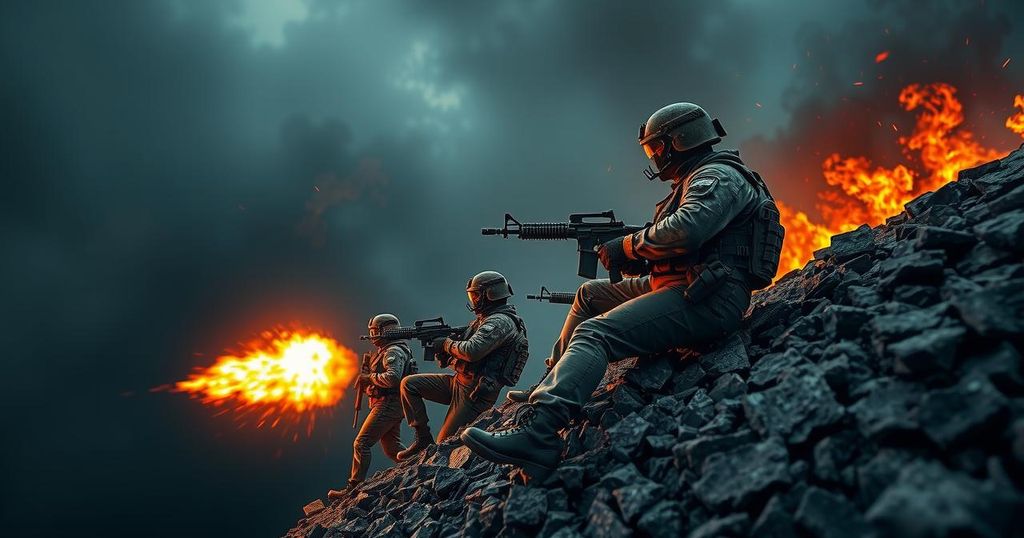Tensions Escalate Between Israel and Hezbollah Amid Fragile Ceasefire
The ceasefire between Israel and Hezbollah faces challenges as both parties engage in military actions and retaliations. Hezbollah’s mortar strike on Israel prompted significant Israeli airstrikes, resulting in casualties. Accusations of ceasefire violations are rampant, and leaders stress the importance of international oversight to maintain peace in the region.
Recent hostilities between Israel and Hezbollah are testing the fragile ceasefire established in the preceding week. Following a mortar attack by Hezbollah on an Israeli military site, Israel retaliated with its largest air strike campaign since the truce took effect, resulting in fatalities in southern Lebanon. Observers have termed the situation as perilous, noting conflicting accusations of ceasefire violations from both parties, who are bound by diplomatic terms negotiated by the United States and France.
According to these conditions, Hezbollah is responsible for refraining from launching attacks, while Israel is prohibited from offensive operations in Lebanon. Israeli officials, including Prime Minister Benjamin Netanyahu and Defense Minister Israel Katz, have stated their intent to respond decisively should the ceasefire fail. Katz emphasized a policy of zero tolerance towards violations, indicating a potential shift towards confronting both Hezbollah and the Lebanese state directly.
Conversely, Hezbollah characterized its mortar strike as a necessary defensive measure against ongoing Israeli incursions, asserting that diplomatic appeals to halt these assaults had been ineffective. Analysis of the situation reveals that Hezbollah is demonstrating its capabilities amid growing frustrations regarding Israel’s actions. Local political figures, such as Paula Yaacoubian and Nabih Berri, highlighted the importance of international monitoring to enforce the ceasefire terms.
The international committee formed to oversee compliance with the ceasefire agreement, backed by representatives from the U.S., France, and the United Nations, is pivotal in managing the current tensions. American officials have also indicated that, despite some violations, there has been a noted reduction in cross-border violence and hostilities. However, the commitment to sustainable peace requires diligent attention and efforts by both local and international actors.
The conflict between Israel and Hezbollah is underscored by a complex history of regional tensions and military engagements. The recent ceasefire, brokered amidst escalating violence, was aimed at re-establishing stability following a series of conflicts that have manifested as intermittent warfare over the decades. The ceasefire agreement stipulates conditions for both parties, mandating Hezbollah to refrain from attacks on Israel while limiting Israeli military operations in Lebanon. However, compliance remains fragile, as evidenced by recent occurrences of fire and mutual accusations of breaches, suggesting that underlying hostilities remain unresolved and further engagement from international mediators is essential.
The recent escalations between Israel and Hezbollah underscore the precarious nature of the newly established ceasefire, raising concerns over potential violations and the risk of further conflict. Both sides appear to be testing the boundaries of the truce while engaging in mutual accusations. The effectiveness of the international monitoring committee will be critical in addressing these violations and fostering compliance among the parties involved. Political leaders emphasize the need for vigilance and a proactive approach to ensure the ceasefire endures, given the historical context of violence in the region.
Original Source: www.bbc.co.uk




Post Comment